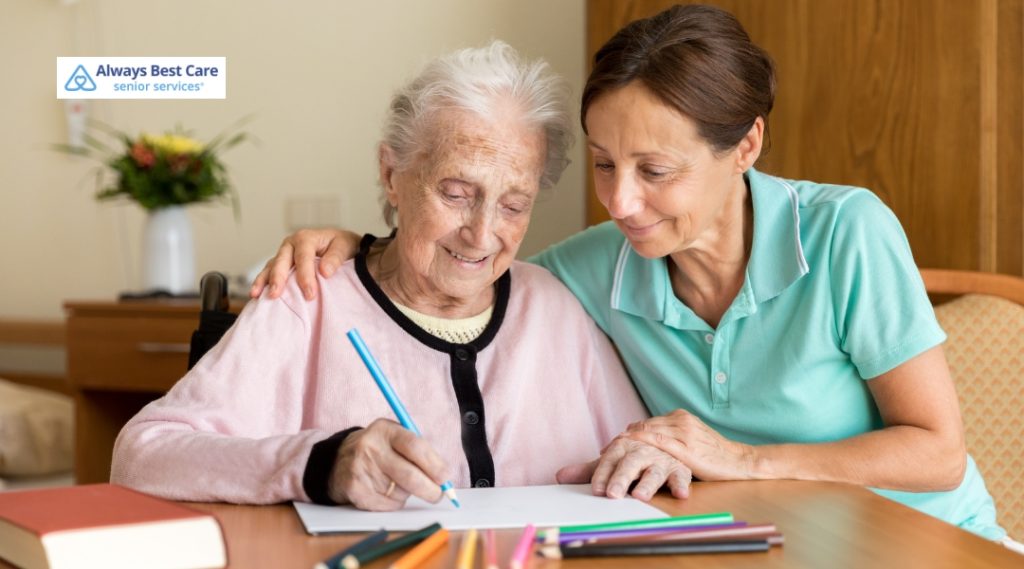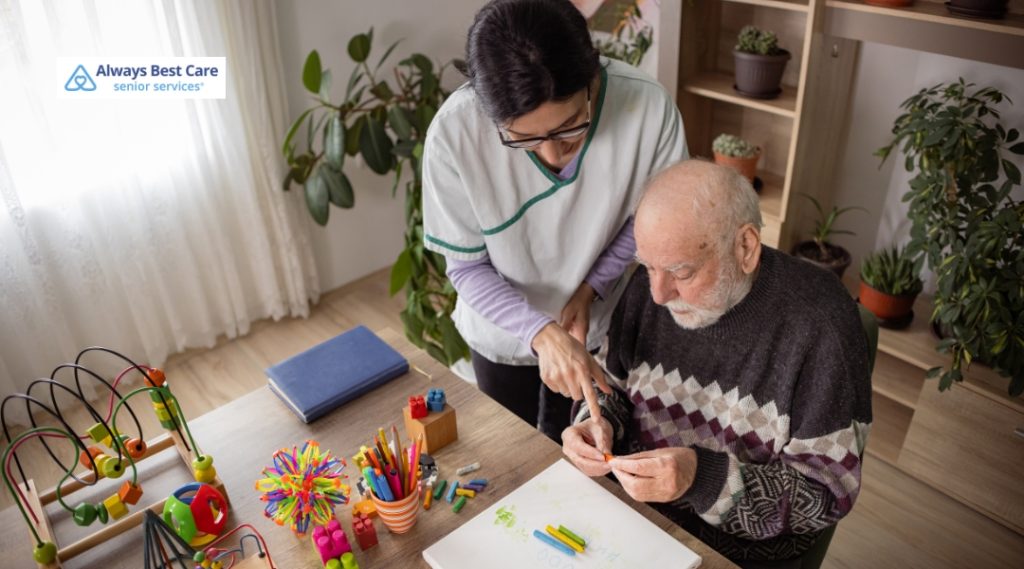Early Signs of Dementia You Shouldn’t Ignore in Princeton, NJ

Watching someone you love grow older is a journey filled with ups and downs.
Sure, forgetting where the keys went or mixing up names now and then feels like part of getting on in years.
But when those little slips start piling up or turning into something more serious, it’s time to sit up and take notice. Those could be the early signs of dementia knocking on your door.
Recognizing these signs sooner rather than later can make a world of difference, not just for your loved one but for everyone around them.
What you will learn:
- How to distinguish between normal age-related forgetfulness and the early warning signs of dementia.
- The most common early indicators of dementia.
- The importance of early recognition and seeking professional guidance, plus how in-home care and resources in Princeton, NJ, can help families navigate the challenges of early dementia with confidence and compassion.
Table of Contents
Normal Aging vs. Early Signs of Dementia
A bit of forgetfulness here and there? Totally normal as we get older, like taking longer to find that word on the tip of your tongue or wandering into a room only to forget why you came in. The key? These moments don’t mess with daily life too much; people still manage their routines, make decisions, and keep appointments without much trouble.
But dementia? That’s a whole different ballgame. It creeps in slowly but steadily, messing with memory, communication skills, judgment—you name it—and eventually making everyday tasks tough or impossible without help.

7 Key Early Signs You Shouldn’t Brush Off
Here are some red flags that might point toward early dementia:
- Memory Lapses That Interrupt Daily Life: Forgetting an appointment once in a while is one thing; forgetting recent conversations repeatedly or relying heavily on notes could mean trouble ahead.
- Struggling With Familiar Tasks: If following Grandma’s famous recipe suddenly feels like decoding hieroglyphics or balancing the checkbook becomes confusing, take note!
- Having Trouble Finding Words Or Following Conversations: Pauses mid-sentence, repeating stories over again, or calling common objects by odd names may signal changes beneath the surface.
- Poor Judgment or Risky Decisions: Handing out money over phone scams or dressing improperly for weather conditions aren’t typical senior slip-ups—they’re warning bells ringing loud and clear.
- Getting Lost Or Confused About Time And Place: Wandering off familiar paths inside their own neighborhood? Forgetting what day it is? These can be scary symptoms worth watching closely.
- Mood Swings and Personality Changes: A usually social person becoming withdrawn, irritable without cause, anxious, or even depressed, could indicate something’s amiss emotionally as well as cognitively.
- Misplacing Items In Strange Spots Without Being Able to Retrace Steps: Losing keys is one thing; putting them in bizarre places like a freezer and then not remembering doing so is quite another.
When Should We Step In?
If you’ve spotted any combination of these signs creeping into your loved one’s day-to-day life, don’t sit tight, hoping things will improve on their own.
Chatting with a healthcare professional sooner rather than later opens doors: better diagnosis accuracy, timely treatment options, even peace of mind knowing there’s support available every step along this tough road.

How Always Best Care Can Help Navigate Early Dementia Symptoms
Caring for someone showing early signs isn’t easy; it pulls at our hearts while demanding constant attention physically, too.
That’s exactly why caregivers from Always Best Care of Princeton are here to help with trained eyes that recognize subtle changes before they spiral, hands ready to assist with daily chores, friends who spark mental activities designed to keep minds sharp longer, all wrapped up with genuine companionship that fights loneliness head-on.
With us by your side:
- Your loved one stays safer at home.
- Independence gets stretched as far as possible.
- Families breathe easier knowing care doesn’t stop when they step out.
That partnership matters—a lot!
FAQ
Q: What makes normal memory loss different from dementia-related memory issues?
A: Normal aging involves occasional forgetfulness but no major disruptions to daily functioning; dementia causes persistent problems affecting everyday tasks.
Q: Can mood changes really signal early dementia?
A: Yes! Unexplained irritability or withdrawal often accompanies cognitive decline because brain chemistry shifts impact emotions, too.
Q: Is getting lost always related to Alzheimer’s disease?
A: Not always, but frequent disorientation about place/time definitely raises concern about cognitive impairment needing evaluation.
Q: How soon should I seek professional advice if I suspect dementia?
A: As soon as possible! Early diagnosis improves management options significantly compared to waiting until symptoms worsen dramatically.

Schedule a Complimentary Consultation at Always Best Care of Princeton!
If you’re concerned about memory changes in someone you care about, don’t wait to take action. Contact Always Best Care of Princeton at (609) 455-2886 for a care consultation. Our experienced team can help you understand your options and create a care plan tailored to your loved one’s unique needs. Early support matters—and you don’t have to navigate it alone.





